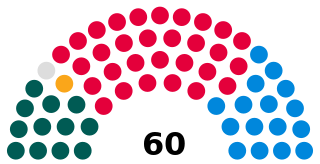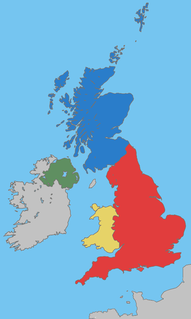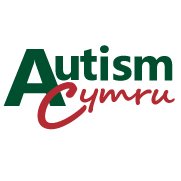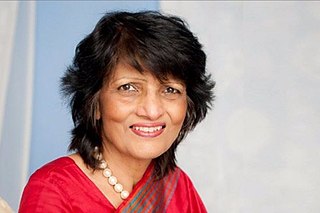Related Research Articles
Plaid Cymru is a centre-left and Welsh nationalist political party in Wales, committed to Welsh independence from the United Kingdom.

The Senedd, officially known as the Welsh Parliament in English and Senedd Cymru in Welsh, is the devolved, unicameral legislature of Wales. A democratically elected body, it makes laws for Wales, agrees certain taxes and scrutinises the Welsh Government. It is a bilingual institution, with both Welsh and English being the official languages of its business. From its creation in May 1999 until May 2020, the Senedd was known as the National Assembly for Wales.

The Welsh Government is the devolved government of Wales. The government consists of ministers, who attend cabinet meetings, and deputy ministers who do not, and also of a counsel general. It is led by the first minister, usually the leader of the largest party in the Senedd, who selects ministers and deputy ministers with the approval of the Senedd. The government is responsible for tabling policy in devolved areas for consideration by the Senedd and implementing policy that has been approved by it.
The Runnymede Trust is a race equality think tank. It was founded in 1968 by Jim Rose and Anthony Lester as an independent source for generating intelligence for a multi-ethnic Britain through research, network building, leading debate and policy engagement. It is led by its director, Dr Halima Begum, who was appointed in September 2020. Its chairman is Sir Clive Jones.
Funky Dragon was the Children and Young People's Assembly for Wales. It was a peer-led organisation that provided opportunities for young people up to the age of 25 to have their voices heard on issues that affected them.

Welsh Development Agency was an executive agency and later designated an Assembly Sponsored Public Body (ASPB). Established in 1976, it was tasked with rescuing the ailing Welsh economy by encouraging business development and investment in Wales, clearing derelict land and encouraging growth of local businesses. In April 2006 its functions were transferred into the Welsh Government.

The Arts Council of Wales is a Welsh Government-sponsored body, responsible for funding and developing the arts in Wales.

Britishness is the state or quality of being British, or of embodying British characteristics. It comprises the claimed qualities that bind and distinguish the British people and form the basis of their unity and identity, and the expressions of British culture—such as habits, behaviours, or symbols—that have a common, familiar or iconic quality readily identifiable with the United Kingdom. Dialogue about the legitimacy and authenticity of Britishness is intrinsically tied with power relations and politics; in terms of nationhood and belonging, expressing or recognising one's Britishness provokes a range of responses and attitudes, such as advocacy, indifference, or rejection.

Carwyn Howell Jones is a Welsh politician who served as First Minister of Wales and Leader of Welsh Labour from 2009 to 2018. He served as Counsel General for Wales from 2007 to 2009. Jones served as the Member of the Senedd (MS) for Bridgend from 1999 to 2021.

Edwina Hart, MBE is a Welsh Labour politician who represented the constituency of Gower from the establishment of the National Assembly for Wales (Senedd) in 1999 until 2016. Hart served in the Welsh Government as Minister for Health and Social Services from 2007 to 2011 and as Minister for Business, Enterprise, Technology and Science from 2011 to 2016.

Nick Ramsay is a British politician who was a Member of the Senedd between 2007 and 2021. He formerly represented the constituency of Monmouth. He was Shadow Minister of Finance under Conservative Leader in the Senedd, Paul Davies MS, but lost the position in Jan 2021 under the new leadership of Andrew RT Davies. Ramsay sat as an Independent member before seeking re-election as an Independent in the 2021 Senedd election.

Elizabeth Joyce Watson is a Welsh Labour politician who has been a Member of the Senedd (MS) for Mid and West Wales since 2007.
Simon Brooks is a Welsh academic and writer.

The United Kingdom of Great Britain and Northern Ireland (UK), since 1922, comprises four constituent countries: England, Scotland, and Wales, as well as Northern Ireland. The UK Prime Minister's website has used the phrase "countries within a country" to describe the United Kingdom. Some statistical summaries, such as those for the twelve NUTS 1 regions of the United Kingdom, refer to Scotland, Wales and Northern Ireland as "regions". With regard to Northern Ireland, Scotland and Wales particularly, the descriptive name one uses "can be controversial, with the choice often revealing one's political preferences".
The Independent Commission on Funding and Finance for Wales, also known as The Holtham Commission, was established by Rhodri Morgan, Ieuan Wyn Jones and Andrew Davies, of the Welsh Assembly Government. The establishment of the Commission was a commitment in the One Wales coalition agreement between Labour and Plaid Cymru in June 2007. Based in Cathays Park, Cardiff, the Commission completed its work in July 2010, publishing its findings in a final report: Fairness and accountability: a new funding settlement for Wales.

Autism Cymru was "Wales' national charity for autism" with offices in Cardiff, Wrexham, and Aberystwyth. The charity was established in May 2001 through an initial 3yrs grant provided by The Shirley Foundation. The founder chair of the Trustees was Dame Stephanie Shirley of the Shirley Foundation.

Meena Upadhyaya OBE is an Indian-born Welsh medical geneticist and an honorary distinguished professor at Cardiff University. Her research has focused on the genes that cause various genetic disorders, in particular neurofibromatosis type I and facioscapulohumeral muscular dystrophy.

Lee Waters is a Welsh Labour and Co-operative politician serving in the Welsh Government as the Deputy Minister for Climate Change since 2021. Waters has served as the Member of the Senedd (MS) for Llanelli since 2016 and was Deputy Minister for Economy and Transport from 2018 to 2021.

Gareth John BennettMS is a Welsh politician who served as the Leader of the UK Independence Party (UKIP) in the Senedd from 2018 to 2019, and was a Member of the Senedd (MS) for South Wales Central from 2016 to 2021.

The Institute of Welsh Affairs (IWA) is an independent charity and membership-based think-tank based Cardiff, Wales, which specialises in public policy and debate around the economy, education, environment and health sectors in Wales.
References
- ↑ "Introduction of AWEMA". AWEMA. Archived from the original on 18 September 2011. Retrieved 7 February 2012.
- 1 2 "Public funding pulled from race relations body Awema". BBC Wales. 26 January 2012. Retrieved 7 February 2012.
- ↑ "Equality issues in Wales: a research review" (PDF).
- 1 2 3 Matt Withers (7 February 2012). "Welsh Government was advised to stop funding Awema in 2004, new report reveals". Western Mail . Retrieved 9 February 2012.
- 1 2 "Awema: Welsh government warned in 2004 to stop funding". BBC Wales. 7 February 2012. Retrieved 7 February 2012.
- 1 2 "Race equality body Awema 'should have been high risk'". BBC Wales. 31 January 2012. Retrieved 7 February 2012.
- 1 2 Martin Shipton (9 February 2012). "Previous chairman and two trustees of ethnic minorities charity Awema quit in 2007". Western Mail . Retrieved 9 February 2012.
- ↑ Martin Shipton (11 January 2012). ""Full investigation" by Welsh Government into All Wales Ethnic Minority Association". Western Mail . Retrieved 7 February 2012.
- ↑ "All Wales Ethnic Minority Association: Darren Millar urges police inquiry". BBC Wales. 31 January 2012. Retrieved 7 February 2012.
- ↑ "Tories question Labour Wales links to Awema charity's boss". BBC Wales. 3 February 2012. Retrieved 7 February 2012.
- ↑ "Carwyn Jones: Government has nothing to hide over Awema". BBC Wales. 7 February 2012. Retrieved 7 February 2012.
- 1 2 "Rita Austin suggests race element in Awema attack". BBC Wales. 6 February 2012. Retrieved 7 February 2012.
- ↑ "Awema race equality chair Dr Rita Austin defends decisions". BBC Wales. 3 February 2012. Retrieved 7 February 2012.
- ↑ "Awema funding terminated after probe finds 'lack of control'". BBC Wales. 9 February 2012. Retrieved 9 February 2012.
- ↑ "Awema scandal: Naz Malik and Saquib Zia are dismissed". BBC Wales. 17 February 2012. Retrieved 16 February 2012.